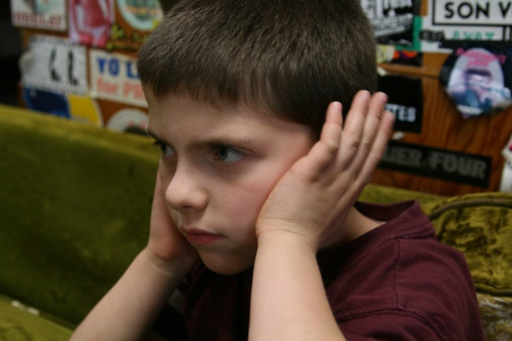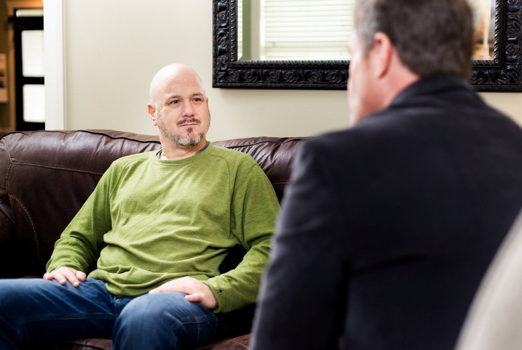What are some of the cognitive therapies for tinnitus treatment? In this article, we will explain and briefly analyze what each main type of cognitive therapy means. Read on to understand treatments for tinnitus (and chronic tinnitus) and its rare types.
Overview of Tinnitus
Tinnitus, better known as “auditory phantom hallucination/perception,” is a common problem. It refers to the condition where you hear constant noises and sounds in your ear when there isn’t an actual external sound source. Tinnitus is ringing in the ear, which also accompanies sensations other than ringing, including whooshing, hissing, humming, buzzing, roaring, clicking, etc.

(Source)
Tinnitus sounds can occur at any time but may sometimes have triggers. These sounds can range in severity, i.e., intensity. From low to high-pitched, these sounds can be either loud or soft. It affects millions of people, while older adults are the most affected people. This is because tinnitus affects ears, auditory nerves, and organs which are, in old age, at a stage of weakening and deterioration. Therefore, old people remain exposed to incurable sound disorder (hearing disorder) tinnitus, unlike many other health problems.
Cognitive Therapy Types: Cognitive Behavioral Therapy (CBT)
Cognitive Behavioral Therapy or Cognitive Behavior Therapy (CBT) is a common name people use to refer to a wide range of behavioral and cognitive therapies. These therapies involve learning, understanding, rethinking, and much more to help cope with tinnitus. What most cognitive therapies share as common characteristics include signifying the importance of the present, setting solid goals, and comprehending how thinking, events, and feelings interplay have on your behavior.
Some theories lay a heavy emphasis on the functions/impact of thinking on human behaviors and feelings. Also, some theories significantly address the effect of environmental factors and conditions. A psychotherapist or any other relevant professional might use a combination of techniques and core process elements to produce a diverse therapy approach.
CBT is itself a therapy that is quite effective on a large number of people. It tends to focus on the connection that lies between your behavior, thoughts, and emotions. Moreover, your emotions, behaviors, and thoughts can influence each other. While there are different techniques that a professional might use, it will highly depend on the type and nature of the issue you are dealing with. For instance, in the treatment of tinnitus, CBT is an umbrella term for many cognitive therapies that help to rethink tinnitus sounds as neutral signals and sounds. Hence, the affected person with effective CBT may notice tinnitus sounds less and tend to be less aware of them. This significantly lowers the impact of this condition on the healthy lifestyle of an individual.
· Mindfulness-Based Stress Reduction (MBSR)
MBSR is a therapy that signifies the importance of mindfulness. It acts as a non-judgmental and acute awareness of your sensory perceptions, physical sensations, and emotional reactions to them, along with the cognitive processes that occur. Instead of struggling with tinnitus and ignoring it without a goal of achievement, MBSR therapy allows patients to embrace their condition and fully accept it. Only after that are they able to control and regulate their experience with tinnitus. Also addressing anger, apathy, and other negative feelings, a person focuses extensively on tinnitus to better manage it.
· Tinnitus Activities Treatment (TAT)
It focuses largely on tinnitus management. Talking technically about TAT, it explores and comprehends four areas where tinnitus has its effects. These include sleep, concentration, hearing (communication), and thoughts (emotions). Also, it involves sound masking therapies.
· Progressive Tinnitus Management (PTM)
PTM is more of an audiology program by the Department of Defense and the VA. It helps in rehabilitation through audio research and focuses on how patients can educate themselves over their condition (tinnitus) through CBT. Further, PTM resources are available on the official websites of the aforementioned departments and associations.
· Tinnitus Retraining Therapy (TRT)
This therapy is a combination regimen to the conventional CBT use. It supplements the techniques and therapies through sound masking and patient habituation. TRT involves directive counseling that helps patients ignore tinnitus while perceiving them as neutral sounds. Additionally, it involves the use of sound masking devices, which further alleviates the effect of tinnitus noises. Sound therapy usually involves a lower-level broadband noise.

(Source)
· Acceptance and Commitment Therapy (ACT)
ACT aims to educate patients and train them into experiencing their original perceptions, emotions, and thoughts in a directly non-judgmental way. Dealing with negative feelings and controlling such reactions gives patients the confidence to achieve mindfulness of the condition, i.e., tinnitus.
Cognitive Therapies for Tinnitus: Conclusion
At the Tinnitus Cognitive Center™, Stephen Geller Katz LCSW-R is an expert offering individualized & specialized care to those with tinnitus.
If you have tinnitus, you should schedule an appointment with Mr. Katz today. Give us a call at 646-213-2321 and schedule a convenient online session from anywhere in the world. It is best to seek prompt treatment and consultation even if you have minor tinnitus symptoms or related sound disorders.
Stephen Geller Katz, LCSW-R
19 West 34th Street
Penthouse Floor
New York, NY 10001
Call today for a consultation
646-213-2321
Reference Links:
https://www.youtube.com/watch?v=fVaac8TNoAs
https://www.audiology.org/news-and-publications/audiology-today/articles/cognitive-behavioral-therapy-for-tinnitus/
https://www.cochrane.org/CD012614/ENT_cognitive-behavioural-therapy-adults-tinnitus
https://journals.lww.com/ear-hearing/fulltext/2017/03000/psychological_therapy_for_people_with_tinnitus__a.4.aspx

[…] can be a heavy daily burden for those with the condition. Luckily there are effective cognitive tinnitus treatments that can lessen or even cure the condition. Knowing the common triggers can also help manage […]